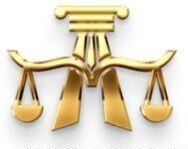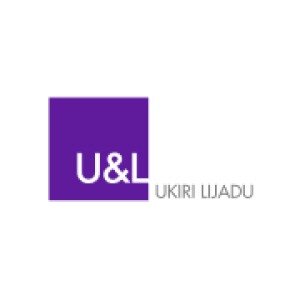Best Native People Lawyers in Nigeria
Share your needs with us, get contacted by law firms.
Free. Takes 2 min.
Or refine your search by selecting a city:
List of the best lawyers in Nigeria
About Native People Law in Nigeria
Native people in Nigeria, often referred to as indigenous or ethnic groups, comprise hundreds of distinct cultures with varied traditions and customs. These diverse groups have longstanding historic ties to their regions in Nigeria predating colonial influences. The Constitution of Nigeria acknowledges traditional authorities and customary laws in matters of personal status, land tenure, and communal rights. Nevertheless, the legal landscape for native people often involves complexities arising from overlaps between federal laws, state regulations, and traditional norms.
Why You May Need a Lawyer
There are numerous situations where individuals may require legal assistance regarding issues related to native people in Nigeria. Common scenarios include:
- Land disputes and ownership: Navigating conflicts over land tenure involving indigenous claimants can be complicated, requiring a deep understanding of both customary and statutory laws.
- Inheritance issues: Traditional inheritance practices may conflict with statutory laws, posing challenges in family estate settlements.
- Recognition of traditional leadership: Legal advice may be needed when disputes arise regarding the appointment or legitimacy of traditional leaders.
- Environmental rights: Indigenous groups may need legal support in protecting their land and resources from exploitation by external parties.
- Human rights violations: Native people may face discrimination, requiring legal action to uphold their rights.
Local Laws Overview
In Nigeria, the legal framework encompasses a combination of statutory law and customary law. Key aspects include:
- Constitutional Recognition: The Nigerian Constitution recognizes the existence and authority of traditional rulers and customary systems in certain circumstances.
- Customary Law: Customary law operates alongside statutory law, addressing issues such as marriage, inheritance, and land ownership specific to native customs.
- Land Use Act: Governs land tenure and ownership, often intersecting with indigenous land rights, necessitating clear understanding for dispute resolution.
- Environmental Protection: Nigerian laws aim to safeguard the environment and the rights of indigenous people against exploitation and environmental degradation.
- Traditional Courts: In some regions, traditional courts adjudicate cases based on customary law, requiring nuanced legal knowledge to navigate effectively.
Frequently Asked Questions
What is the role of customary law in Nigeria?
Customary law plays a significant role in Nigeria, operating alongside statutory law, especially in personal, family, and land matters concerning native people.
How are land disputes usually resolved?
Land disputes among native communities are often resolved through a mix of traditional dispute resolution mechanisms and formal statutory legal processes.
Can traditional leaders make enforceable legal decisions?
Yes, within their communities, traditional leaders can make decisions based on customary law, but these must not conflict with the national statutory framework to be enforceable.
Are there legal protections for the environment concerning native lands?
Yes, Nigerian laws provide protections for the environment and uphold the rights of indigenous groups to manage their lands sustainably.
What should I do if my rights as an indigenous person are violated?
Seek advice from legal practitioners specializing in human rights or indigenous law to take appropriate legal action or mediation.
Can customary law affect inheritance rights?
Yes, customary law often governs inheritance matters within native communities, sometimes differing from statutory inheritance laws.
How do I find a lawyer knowledgeable in native people's law?
Contact local bar associations or legal aid organizations that can refer you to lawyers specializing in customary and native law.
Are there specific organizations that aid native people legally in Nigeria?
Yes, organizations such as the Nigerian Human Rights Commission and various NGOs focus on legal issues affecting native people.
What happens if there's a conflict between customary law and statutory law?
Statutory law usually prevails, but such conflicts are typically addressed through judicial interpretation, requiring legal expertise.
Can native people have legal representation in traditional courts?
Yes, individuals can have legal representation, although traditional courts often favor informal negotiation and mediation practices.
Additional Resources
Here are some resources that can be helpful:
- Nigerian Human Rights Commission: Provides help in cases of human rights violations.
- Legal Aid Council of Nigeria: Offers free legal assistance to those who cannot afford it.
- Nigerian Bar Association: Can refer individuals to lawyers specialized in native and customary law.
- National Council of Traditional Rulers of Nigeria: Engages in dialogue on issues affecting traditional governance.
Next Steps
If you need legal assistance with issues related to native people in Nigeria, consider taking the following steps:
- Evaluate your specific legal needs and gather relevant documents and information.
- Contact a lawyer or legal aid service specializing in native people's law to discuss your case.
- Engage with local organizations and bodies dedicated to indigenous rights for additional support and resources.
- Be proactive in learning about your rights and the applicable laws to make informed decisions.
Lawzana helps you find the best lawyers and law firms in Nigeria through a curated and pre-screened list of qualified legal professionals. Our platform offers rankings and detailed profiles of attorneys and law firms, allowing you to compare based on practice areas, including Native People, experience, and client feedback.
Each profile includes a description of the firm's areas of practice, client reviews, team members and partners, year of establishment, spoken languages, office locations, contact information, social media presence, and any published articles or resources. Most firms on our platform speak English and are experienced in both local and international legal matters.
Get a quote from top-rated law firms in Nigeria — quickly, securely, and without unnecessary hassle.
Disclaimer:
The information provided on this page is for general informational purposes only and does not constitute legal advice. While we strive to ensure the accuracy and relevance of the content, legal information may change over time, and interpretations of the law can vary. You should always consult with a qualified legal professional for advice specific to your situation.
We disclaim all liability for actions taken or not taken based on the content of this page. If you believe any information is incorrect or outdated, please contact us, and we will review and update it where appropriate.
Browse native people law firms by city in Nigeria
Refine your search by selecting a city.















